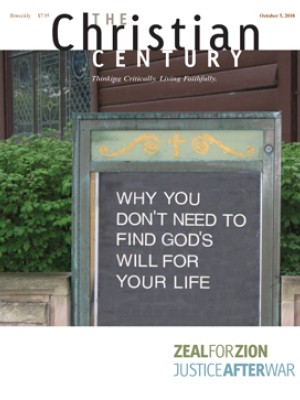Sunday, October 17, 2010: Psalm 119:97-104; 2 Timothy 3:14-4:5
My friend Jim was my religion professor during my freshman year of college. He and I reminisce about the book he assigned for the course, William Hordern's Layman's Guide to Protestant Theology. I was new to religious studies and so excited by the book that I got up at 4 a.m. to finish it. The book and the course inspired me to begin serious Bible study and to choose a church vocation.
On the basis of my experience, I understand the excitement of the psalmist. "How sweet are your words to my taste, sweeter than honey to my mouth!" he sings to God. How wonderful to discover God's word! In his love for the law, the psalmist is effusive and sensual; with a few word changes, verse 103 could be said to a lover. He is so consumed with passion that he forgets humility and declares that he is wiser than his enemies and his teachers and elders. He sounds like a youth, confident and slightly full of himself in his understanding and faithfulness. Jesus does want us to have the eagerness and openness of children. But the psalmist also reveals a maturity that eschews youthful experimentation; rather than sowing wild oats, he recognizes that God's commandments and testimonies are all that he needs.
Read our latest issue or browse back issues.
The passage from 2 Timothy addresses youthfulness by harkening back to the lovely assurance of 1:5-7. Timothy is a young man, trained and nurtured by his family. He must rekindle God's gift to him. Paul assures Timothy about the companionship and nurturing quality of the scriptures—God's Spirit inspiring the scriptures yesterday, today and tomorrow.
In 2 Timothy 3:2-5, Paul encourages a kind of patience and perseverance that sustains him whether people listen or not, or appreciate his efforts or not. I've known people attracted to the sense of peaceful acceptance and patience of Buddhism when they perceive a judgmental quality and impatience in Christians. Yet Timothy's teacher encourages in him a wise sense of patience. The younger man may not always be successful, but he can always be patient, calm, faithful and loving as he preaches and teaches people who, quite possibly, will seek other kinds of answers.
Verses 3-4 remind me of people who pick and choose among different religious faiths. This is a phenomenon pervasive enough that it has even been discussed in histories of American religion. It is not a bad thing to learn from other faiths, but after studying the Bible for 35 years, I can testify to the amazing peace and "compass" effect of the Bible upon my own life. An orientation like the psalmist's, for whom Bible study is a delight that he cannot wait to resume, enriches and sustains one's relationship with God. 2 Timothy 3:16-17 is the "elephant in the room" in this passage. During my college years, the inerrancy of the Bible was hotly contested thanks to Harold Lindsell's Battle for the Bible and other books. These verses, which reflexively refer to the book's authority (and, in their historical context, probably refer to the Old Testament only), are often the crux of the discussion.
I appreciate G. C. Berkouwer's words in Studies in Dogmatics: Holy Scripture, another college discovery for me. Berkouwer points out that the phrase "the Bible is inspired and thus free from error" confuses error in the sense of incorrect knowledge with error in the sense of deception and sin. The biblical authors, within their particular time and culture, had limited knowledge of certain subjects, including science. When we encounter ancient and nonscientific views of the cosmos in the Bible, we need not think that we're selling out the Bible to science when we recognize the former's cultural origins, nor do we have to declare the Bible wholly false if the scientific discoveries do not conform to biblical details. But if we claim that the Bible must be error-free, then what Berkouwer says is true: "The relationship of the organic, God-breathed character to the organic unity and scope of the total testimony of Scripture is almost totally ignored." What is needed instead is a naturalness on our part to witness to the reliability and authority of the Bible in its overall purpose as a God-breathed witness to God. It's not a science book.
People will continue to discuss and debate the nature of scripture's inspiration, but love should always be a genuine and sincere aspect of those discussions. As Paul writes, scripture is useful for all kinds of instructional, doctrinal and evangelical purposes, but the element of love is necessary or else the purpose of the Bible is lost (1 Cor. 13:2). Paul's kind of love is different from, yet related to, the psalmist's: a loving eagerness to encourage Timothy to be grounded in God's Spirit through the word, God's steadfast love for us and the support of his family and friends.






